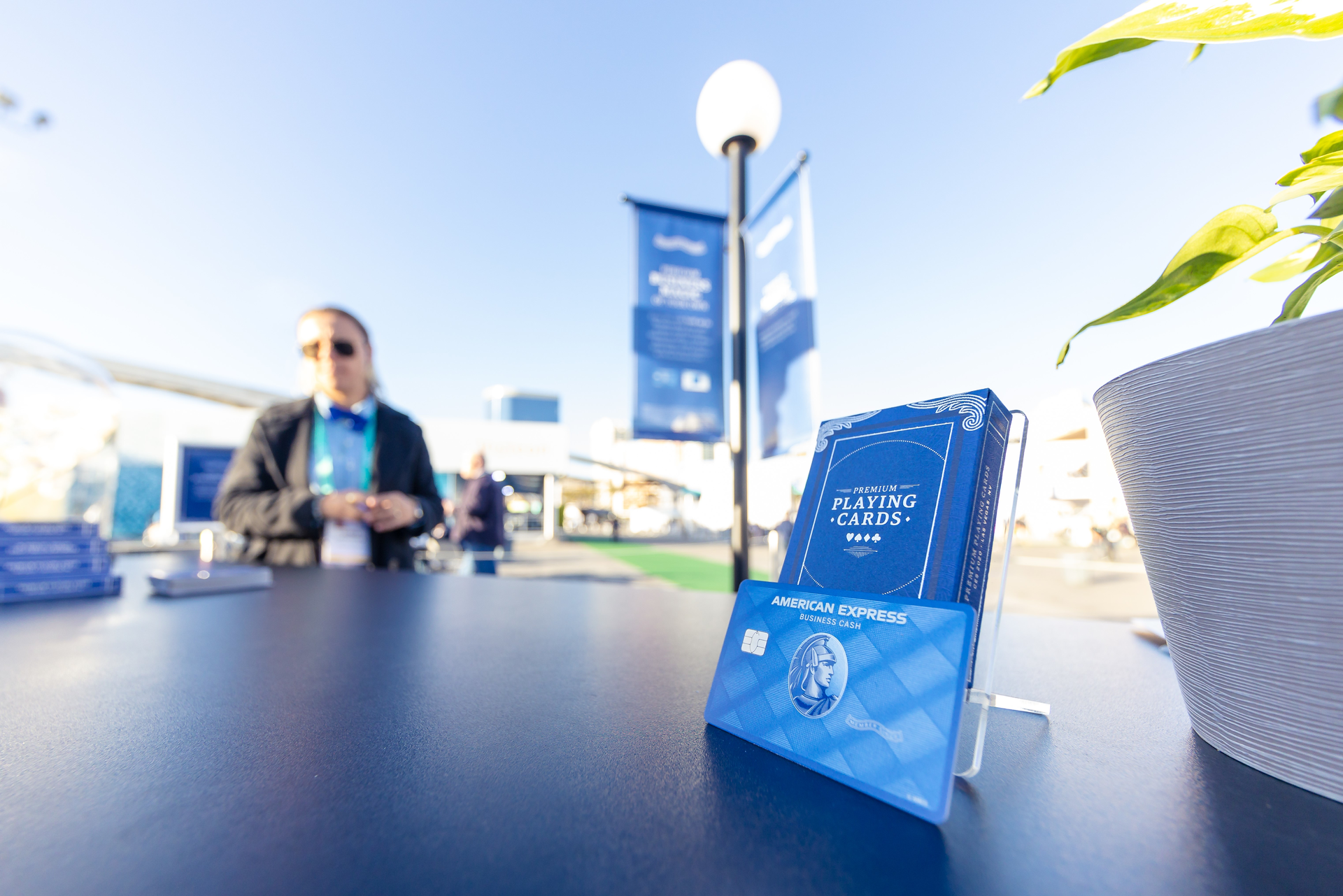For Chris Weil, CEO of experiential ad agency Momentum Worldwide, the annual CES show in Las Vegas can be both inspiring and overwhelming. It’s also serious business for his client, American Express, who used his company’s services to execute an experience to rise above one of the busiest trade shows of its kind.
“CES is a cultural ‘heat moment’ across industries,” Weil told me. “We all come together to discuss and discover the next generation of technologies bound to shape our industry for the year ahead. But, it can be overwhelming. We run from booth to booth, consumed by digital interactions, forgetting to have a real one.”
He described his goal at the show: “to create a moment in time, a true experience, for the American Express brand that would break through the clutter and do what we all say it is we should be doing more of—connecting with our customers.”
He added, “American Express is famous for its exceptional service, with customers often left asking, ‘How did they do that?!’”
Last year, DMN covered recent Amex/Momentum collaborations at the US Open tennis tournament. For instance, in 2018 fans were given the opportunity to wield a 3D-printed racquet and swing it at augmented reality tennis balls, leveraging fan passion for tennis and technology into enthusiasm for the brand.
At CES 2020, Momentum took a step back from the virtual and grounded the new Amex experience in “meatspace.” The team curated a magic-themed experience, bedecked with playing cards and a throwback carnival aesthetic, and presented an exclusive performance by renowned magician Dan White.
This offline experiential strategy was informed by Momentum’s ongoing research, including WE KNOW Experiences, drawing on 2019 data.
It found that consumers are fatigued, and a lot of flashing lasers and virtual flying saucers might not be the best way forward for every brand.
“Simply put, today consumers are more stressed out than ever,” Weil said. “They want to re-center, to focus inward, to return to simpler times and remember what feels truly important. Consumers want to focus on health and wellness (86 percent), they want to carve out time to have fun (85 percent), they want to explore in nature (83 percent). As brand marketers, we just need to listen.”
He explained: “This is where experiential marketing will play such an important role in 2020 and beyond. Brands need to find ways to make their experiences be and feel genuine — and gratifying. It’s what the consumers want. In fact, 81 percent say they welcome brands that encourage celebrating little moments and 54 percent look to experiences that will improve their mental health.”
So, card tricks. Maybe not a hypnotist.
This also doesn’t mean that Weil avoided the innovations that still guide the central mission of CES. IN his estimation, marketers should note that, for instance, 5G is taking over. For consumer screens, 4K is out and 8K is in.
He added, “Artificial humans are walking around that act and look like real people — and more notably, are capable of displaying real emotions and intelligence (so I heard!). Focusing on genuine human interactions, and forming true connections in 2020 is taking on new dimensions.”
In experiential marketing, the experience is already in 3D, and the humans (magicians, attendants) create genuine interactions without advances in AI. Still, there is a wow factor to seeing how high intelligence can climb artificially.
“While exciting and impressive — all of these new technological developments focus on making consumers lives better and easier—a noble goal, but one that is fraught with the ongoing challenges of its impact on our privacy,” Weil stated. “Overall, it’s an exciting time to be in this business!”








